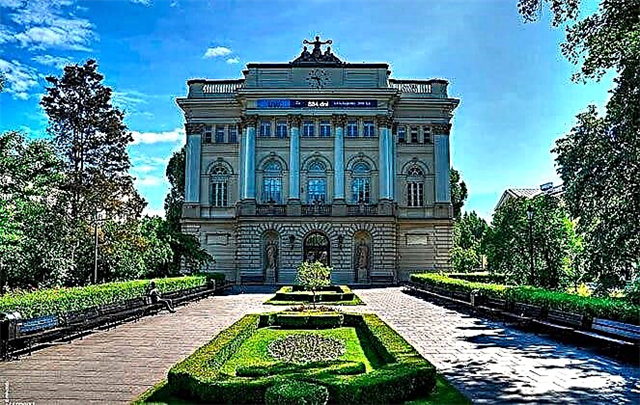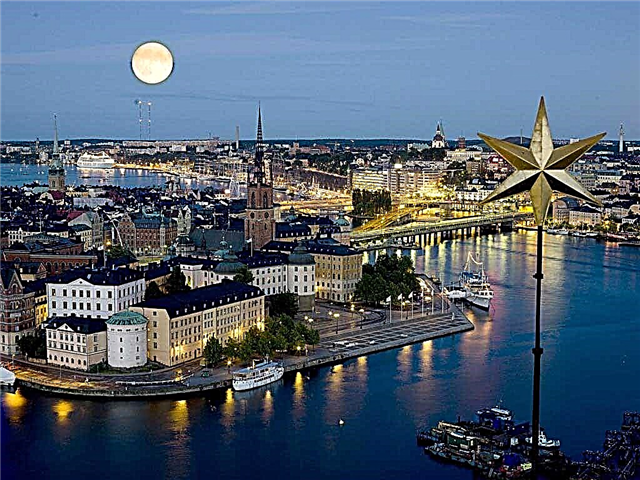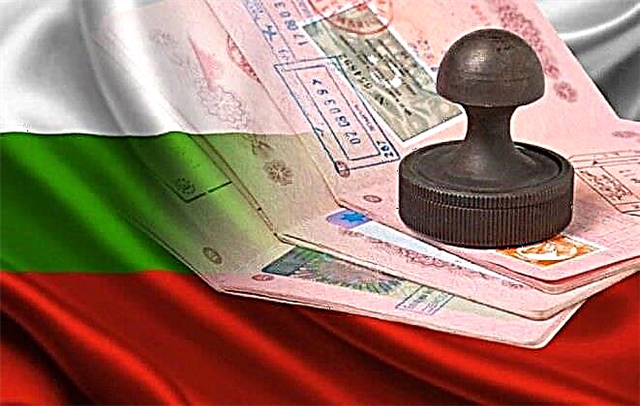A visa to Bulgaria is issued for various reasons: tourist trips, employment, business negotiations, moving to permanent residence. Bulgarian visas are popular among Russians as well. Despite the country's accession to the European Union since 2007, it is not a member of the Schengen Agreement. What does this say for travelers, what do Bulgarian visas give to tourists and in what order can they be obtained?

General information about visas to Bulgaria
In accordance with the Agreement L 157/11 of 21.06.2005, from 01.01.2007 Bulgaria became a member of the European Union. The republic applies a single EU visa policy and fulfills the requirements of Council Regulation (EC) No. 539/2001 of 03/15/2001, therefore the answer to the question whether a visa is needed to travel to Bulgaria is unequivocal: it is absolutely necessary.
In accordance with Art. 4 of the law no. L 157/203 of 21.06.2005, the rules of the Schengen law are binding and are applied by Bulgaria from the moment of accession to the EU. However, despite its membership in the EU, the decision on Bulgaria's accession to the Schengen zone has not yet been made, in connection with which the leadership of the republic applies Schengen legislation under specific conditions.
Thus, the republic's leadership is making great efforts to join the Schengen zone, updating the contractual base, introducing the latest technical equipment to ensure and strengthen the administrative capacity and external borders of the EU.
But, despite this, even a multiple entry Bulgarian visa is not a Schengen visa and therefore does not allow unhindered entry and movement within the Schengen area. In the overwhelming majority of cases, it operates only on the territory of the republic and some other countries, which we will talk about later. Depending on the type of visa, the duration of its validity, as well as the period of possible uninterrupted stay in the country, differs.
Despite the exclusively national action, there are no external differences from another European visa, since the Bulgarian visa in the passport looks exactly the same as the Schengen visa - the obligatory application of the Schengen rules affects.
The rules for issuing entry visas apply in a similar way. Only those persons who:
- have health insurance valid in the EU;
- can confirm the purpose and place of their stay, route, as well as the terms of mandatory departure from Bulgaria;
- can confirm the existence of a source of income, for example, a visa to Bulgaria for pensioners and disabled people is issued only on condition of receiving a pension, for non-working people - if they have passive income or savings;
- do not pose a threat to the EU and are not banned from entering the Schengen area.
The peculiarities of obtaining Bulgarian visas depend on the type and purpose for which they are requested.
Types of visas in Bulgaria
Bulgaria is a member of the EU, therefore, the types of Bulgarian visas that are established by the EU Visa Code (EU Regulation No. 810/2009) are valid on its territory. In accordance with it, the Bulgarian embassies and visa centers can issue:
- short-term tourist and other category C visas;
- long-term national visas of category D.
Each of these categories has its own characteristics.
Category A transit visa
An airport transit visa is a permit that gives a foreigner the right to stay in the international transit zone of an airport in one of the cities. The need for such a visa arises in the event of a transfer between flights, when traveling to a third non-EU country, for example, on the route Moscow-Sofia-Sydney. But now such visas are not issued.
Recently, for transit through Schengen, instead of category A visas, a standard visa of category C for 5 days is issued, marked Transit. For transit by car, you will need to receive it. In addition to standard documents, you will need to provide a driver's license, Green Card insurance, registration certificate and a written route plan.
Short-term visas of category C
Short-term visas of category C can be issued for different periods and for different purposes. But all of them are united by one condition - the duration of stay in the Bulgarian territory, which cannot exceed 90 days within a six-month period.
First, a short-stay C visa can be issued in case of transit. If you are looking for an answer to the question of what visas are needed to travel to Bulgaria by car and cross its borders on the way to another country, the C transit visa is just the right case. The main condition for the recognition of transit is the intention to enter the republic on one side and leave on the other.
Secondly, a short-term C visa can be issued for a planned stay in Bulgaria. This is the most common type of permits issued. Such a visa to Bulgaria is issued when buying a tour to Varna or planning an independent vacation, for example in Burgas, when visiting friends or relatives living in the republic, including if they are residents of other EU countries, when establishing business contacts, maintaining them and carrying out commercial activities, when visiting Bulgaria as a driver of international road transport, when visiting cultural, sports events and so on.

As a rule, a visa for owners of real estate in Bulgaria is issued in the same manner. They do not receive special privileges in migration registration, therefore they come to the country on the same conditions as tourists.
Depending on the conditions of stay, a C visa can be issued for one-, two- or multiple-entry into the country. At the same time, a permit for multiple entries can be issued for a period of up to 1 year and up to 5 years.
Let's figure out what a double-entry visa to Bulgaria means: such a permit allows you to use a visa no more than two times during its validity.
A multiple entry visa valid for up to 12 months is usually issued provided that:
- during the last year, a single or double C visa was issued to a foreigner;
- the conditions of stay in Bulgaria were met;
- there are grounds for obtaining a multiple entry visa.
A visa to Bulgaria for 5 years of category C is usually issued if within the past two years a foreigner has been issued a one-year multiple-entry visa and the grounds for issuing a multiple-entry visa are still valid, for example, a foreigner:
- maintains business relations with Bulgarian partners and foreign representations in Bulgaria;
- contributes to the development of bilateral relations with Bulgaria;
- is a family member of a Bulgarian or EU citizen;
- is a family member of a foreigner permanently residing in the republic, and so on.
Long-term national visa category D "
In accordance with Art. 15 of the Bulgarian Law “On Foreigners” (Law “For foreigners in the Republic of Bulgaria”), foreigners who plan to settle and permanently reside in Bulgaria can be issued a category D national visa. Usually it is issued as a student visa to Bulgaria, a work visa or a visa for those who, for other reasons, intend to stay in the republic for a long time, for example, when reuniting with their families.
In general cases, it is issued for a period of up to 180 days with the ability to stay in the country throughout this time with the ability to extend the visa, while maintaining the circumstances by virtue of which it was issued. However, a Category D visa can also be issued for up to 12 months if the applicant is:
- researcher or student - for one academic year;
- a postgraduate student or a foreign trainee seconded by a foreign employer;
- an employee of a foreign employer, called upon to monitor the execution of the contract on tourism services;
- by a foreign employer, in accordance with the Investment Promotion Law.
Such a permit does not limit a foreigner in the number of visits to Bulgaria, regardless of its validity period. The visa is canceled in case of obtaining a residence permit.
Procedure for obtaining a Bulgarian visa
It's time to figure out how to get a visa to Bulgaria: the procedure for obtaining an entry permit may differ depending on the category of the requested visa, which, we recall, is determined by the purposes of the intended trip.
In general, the procedural procedure for submitting a request and issuing a visa will require the following steps from the applicant:
- Buy tickets / tourist tours, book a hotel, develop a travel itinerary or define any other purpose for a trip to Bulgaria.
- Collect a package of necessary documents, pay the consular fee for a visa to Bulgaria, if necessary.
- Contact one of the competent diplomatic missions and make an appointment or contact another representative office authorized to issue entry visas without an appointment.
- Personally apply to the selected body at the appointed time and submit a package of documents. For a short-term visa, documents can also be submitted by relatives or other representatives by power of attorney, since fingerprinting (fingerprints) is not a necessary procedure for registration. For a long-term visa, personal submission of documents is required.
- Wait for the result, contact the document filing authority and receive a passport with a visa or receive it by courier delivery (if possible).
Some design stages have a lot of peculiarities, so let's dwell on them in more detail.
Where can I get a visa
There are two options for Russians where to apply for a visa to Bulgaria: diplomatic missions or Bulgarian visa centers.

At visa centers, it is allowed to issue only short-term visas of category C and without an appointment. Group recording is possible by prior arrangement.
The centers operate in 16 cities of the Russian Federation, including:
- Moscow, at the address: st. Suschevsky Val 31, building 2;
- Irkutsk, at the address: st. Sverdlov, house 10, 2nd floor;
- Kazan, at the address: st. Paris Commune, 8 (entrance from Moskovskaya Street);
- Krasnodar, at the address: st. Academician Pavlov, building 64;
- Murmansk, at the address: st. Karl Liebknecht, house 13;
- Omsk, at the address: st. Frunze, 1, building 4, office 713;
- Rostov-on-Don at the address: st. Trolleybusnaya, house 24 / 2v, 2nd floor.
The addresses of other centers can be found here.
A long-term visa of category D can be issued exclusively at diplomatic missions and only by appointment at:
- Embassy of Bulgaria in Moscow at the address: Mosfilmovskaya st., 66, preliminary registration by phone. +7(499)709-9281 or +7(499)703-3748 from 9.00 to 11.00;
- Consulate General of Bulgaria in St. Petersburg at st. Ryleeva, 27, tel. +7 812 401 01 52;
- Consulate of Bulgaria in Yekaterinburg at the address: st. Karl Liebknecht, 22, office 403, tel. +73432726906.
Also on the network you can find many offers from travel agencies and intermediaries. However, today it is completely easy to make a Bulgarian visa on your own, inexpensive and hassle-free, you will not have to wait long for a decision even if you apply for a D visa.
Please note that the possibility of obtaining a visa through the MFC, State Services and other Russian authorities is not provided.
Package of documents
In each case, the package of documents for a visa is different and usually depends on the purpose for which the applicant plans to visit Bulgaria. In any case, the list of required documents includes:
- visa application;
- a passport valid for at least 3 months after the end of the visa;
- color photo 35x45 mm;
- medical insurance, the minimum amount of coverage for which is 30 thousand euros;
- booking tickets for a plane, train, bus or documents for a car;
- signed consent to the processing of personal data.
In addition, depending on the situation, you may need to:
- hotel reservation confirmation - a copy of the reservation on the hotel's letterhead with a signature and seal, or a printout from an electronic booking system, for example, booking.com (for tourist and business trips);
- a written invitation from an individual or a legal entity (pokana-declaration) for private or business trips or from charitable organizations, the Ministry of Culture, the Ministry of Education, sports federations and other organizations;
- a certificate from the place of work indicating the position and the amount of salary (a visa to Bulgaria without a certificate from work is issued for private visits and for visits by property owners);
- a notarial deed for the sale and purchase of real estate - for homeowners;
- documents confirming the relationship and legality of residence of relatives in Bulgaria;
- an invitation to work or training from an employer or educational institution, respectively;
- letter of recommendation from the Chamber of Commerce in case of a business trip;
- proof of sufficient funds at the rate of 50 euros / day, but not less than 500 euros for the entire trip, for example, a bank statement for a visa to Bulgaria can be obtained.
Visa application
An application form for a Bulgarian visa is filled out in Russian according to the approved form, which can be obtained at the place of submission of documents or downloaded here.
The form contains standard data, such as:
- surname, first name;
- date and place of birth, current citizenship;
- gender, marital status, identification number;
- type and details of the passport;
- home address;
- current profession, employer, reasons for travel;
- number of entries requested, length of stay;
- planned date of entry / exit;
- details of the inviting party and the person who will bear the travel expenses, and so on.
The questionnaire is issued free of charge and can be completed both by hand and using a PC. In the case of handwritten filling, it is forbidden to use a proofreader, strikethrough, additions, errors, abbreviations, but 3 corrections are allowed, each certified by a personal signature.

Features of visa processing for minors
Please note that a visa to Bulgaria for minors is issued at the request of their legal representatives (parents, guardians, adoptive parents) or powers of attorney issued by them, while the personal presence of children is not required. Even if the child is over 14 years old, a copy of the birth certificate must be submitted as a document confirming relationship with parents or other facts for the embassy.
In addition, the Bulgarian visa for children may require other documents depending on the situation, for example:
- notarized consent to leave from one or both parents, depending on who is accompanying the child;
- death certificate of one of the parents, a court decision on recognition as dead / missing or on deprivation of parental rights;
- act of the guardianship authority on the appointment of a guardian, a court decision on adoption, and so on.
Both parents sign the application for a child visa, and if he has reached the age of 14, then the child himself. If he applies for a free visa to visit cultural or sports camps, a visa to Bulgaria for a 2-year-old child cannot be valid, its maximum validity period is 1 year.
Please note that a separate package of documents is submitted for the child, even if he is traveling with his parents. More features about documents for children here.
Cost and terms of issuing a Bulgarian visa
The price of a visa is usually determined by the size of the consular fee as the largest payment. But there are other expenses, the amount of which depends on the type of visa and its urgency.
You can make a cheap short-term visa yourself through visa centers. The cost of a Bulgarian visa for Russians in 2021 under category C at visa centers, including additional costs, is determined according to the following tariffs.
| Payment type | Regular visa |
|---|---|
| Consular fee | 35 euros |
| Service Fee | € 19 |
| Express delivery | 725-1720 rubles |
| Insurance policy | from 1.5 thousand rubles for 14 days |
When applying for a D visa, the consulate does not charge a service fee, but the consular fee is 100 euros. Here you can find out about cases of exemption from payment of the fee.
How long a visa is made in time to Bulgaria also depends on the type of permit. So, according to the information of the visa centers, the period for consideration of an application for a category C visa is 4 days from the moment the documents are received at the embassy.
If a visa is needed quickly and the applicant has ordered an express examination, the period will be 2 days. But in any case, it can be extended up to 30 days from the date of submission of documents if additional study is required.
The situation is different with a national visa. The processing time for a Bulgarian D visa is usually 30-35 days, but it is recommended to submit documents in advance, as the processing time for a visa application may be delayed. In any case, it is allowed to submit documents no earlier than 3 months before the planned date of the trip.
Is it possible to track the status of the application
After submitting documents for a short-term visa through visa centers, it is possible to track the readiness of a visa to Bulgaria online. To check the status of the application, you need to go to the site of the certified partner VFS.GLOBAL, enter the registration number of the application received when submitting documents, date of birth and captcha. After a moment, the status of the application will appear on the PC screen.
When applying for a national entry permit through diplomatic missions, you can check the readiness of a visa to Bulgaria only by phone or during a personal visit to the embassy / consulate.
Can they refuse
Regardless of the method of submission of documents, the applicant is not guaranteed a positive result of the consideration of the application, he may be refused. At the same time, in case of refusal, previously paid service and consular fees and other payments are not refundable.

Usually, the reasons for refusing a Bulgarian visa are indicated in writing, it can be:
- violation of EU migration legislation;
- a ban on entry to the EU and the Schengen area;
- doubts about the authenticity of the issued documents;
- providing bogus invitations;
- non-confirmation of the reasons for the trip;
- lack of a sufficient amount;
- outstanding criminal record, unpaid fines / taxes in the EU and so on.
If the reasons for the refusal are eliminated, the applicant has the right to reapply for a visa or to appeal the refusal in accordance with Bulgarian law.
Is it possible to enter Bulgaria with visas of other countries
A person who is wondering what visa can be used to enter Bulgaria is obviously considering other options for visiting the republic. And they really are - not everyone will need to issue an entry permit.
- First, let us note the citizens of those countries with which the European Union has established visa-free entry. For example, Moldovans and Ukrainians who have issued a foreign passport with biometrics will not need a visa to enter Bulgaria.
- Secondly, it is allowed to enter Bulgaria on a Schengen visa. Holders of any of the visas of the Schengen countries can freely cross the Bulgarian borders both when traveling directly to Bulgaria, and when traveling to other EU countries in transit through the Bulgarian territory.
- Thirdly, for short-term stays, entry is allowed on visas issued by Romania, Cyprus and Croatia.
There are no other options for entering without obtaining a Bulgarian permit.
Where to go with a Bulgarian visa
The question of where you can go with a Bulgarian visa remains relevant for its holders. As we said above, the Bulgarian visa is not a Schengen visa, but in some cases it still allows entry to some countries. These include only Croatia, Romania and Cyprus - countries with which the Bulgarian government has entered into relevant agreements. On the Internet you can find information about other countries, but these EU members are the only ones where a Bulgarian visa is valid.
Conclusion
Bulgaria is an EU country, therefore you can enter its territory with a Bulgarian or any valid Schengen visa. At the same time, Bulgaria is not a Schengen country, therefore its visa does not allow its owners to cross the borders of the zone.
At the moment, Bulgaria issues two types of visas, categories C and D: the first can be obtained at the visa center, the second - only at the embassy or consulate. A visa fee is charged for issuance of 35 euros for a short-term visa, 70 euros for an urgent short-term visa and 100 euros for a long-term visa.











